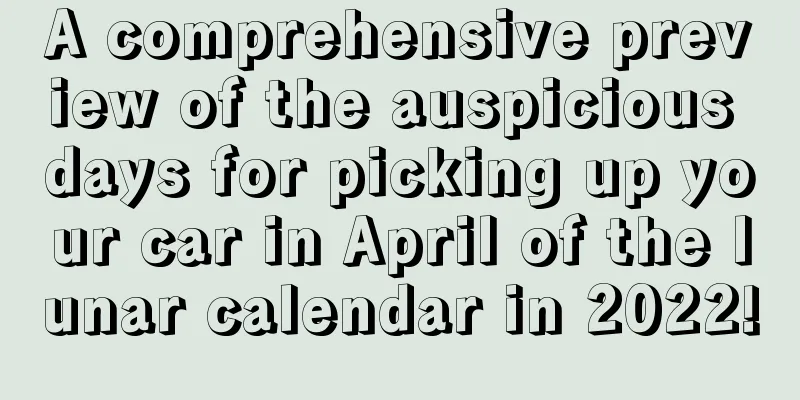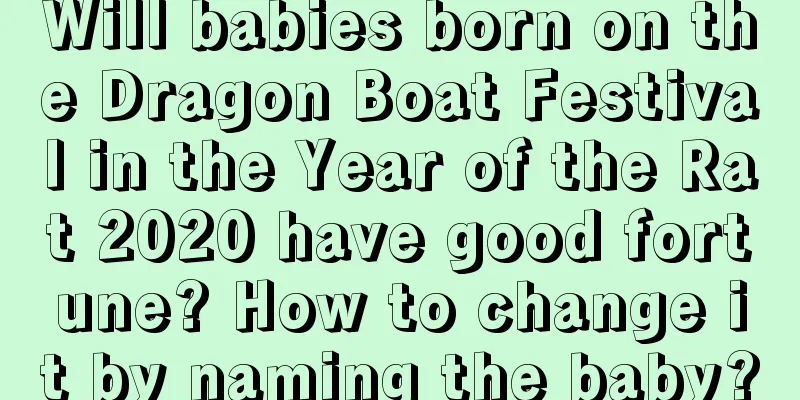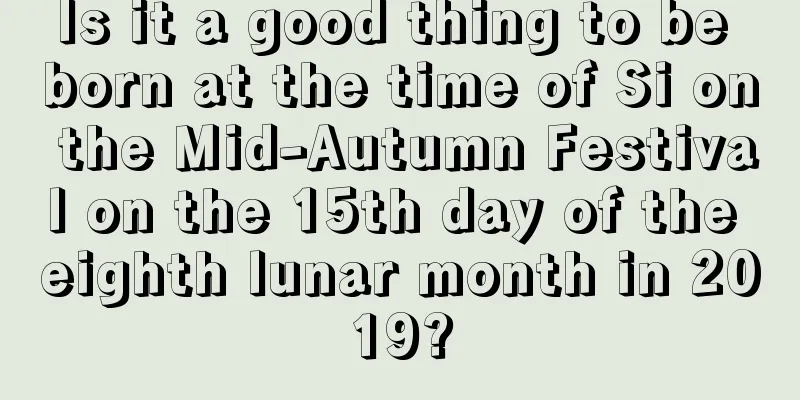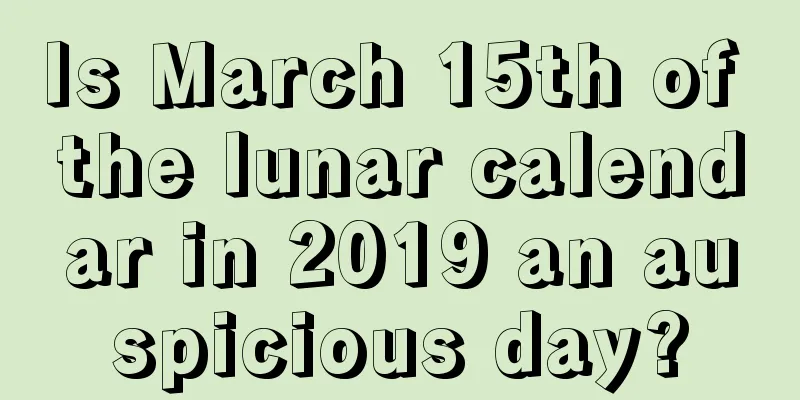What day is New Year's Day? Who first proposed New Year’s Day?
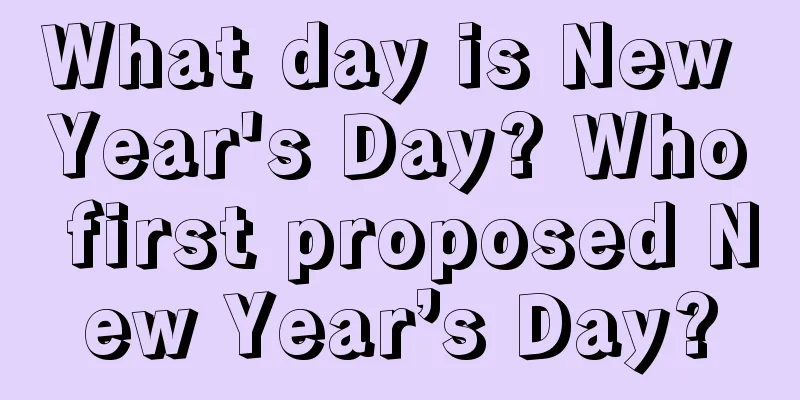
Everyone is familiar with the word "New Year's Day". So, let's take a look at what day is New Year's Day? Who first proposed New Year’s Day? In the eleventh month of the lunar calendar in 2021, the breath of winter is getting stronger and stronger, and the cold wind blows across our faces like a sword. Why not follow Mr. Shui Mo to see what the fortune is like in the eleventh month of the lunar calendar!What day is New Year's Day?New Year's Day, which is January 1st of the Gregorian calendar, is commonly known as the "New Year" in most countries in the world. Yuan means "beginning", so the beginning of any number is called "yuan"; Dan means "day", so "New Year's Day" means "the first day".After the Revolution of 1911, in order to "follow the Xia calendar to follow the agricultural season and the Western calendar to facilitate statistics", it was decided to use the Gregorian calendar in the first year of the Republic of China (actually used in 1912), and January 1 of the Gregorian calendar was designated as "New Year", but it was not called "New Year's Day". In 1949, the People's Republic of China adopted January 1 of the Gregorian calendar as New Year's Day, so "New Year's Day" is also known as the "Gregorian Year", "New Calendar Year" or "Gregorian Year" in China. Who first proposed New Year’s Day?It is said that it was proposed by Emperor Zhuanxu, one of the Three Sovereigns and Five Emperors, who stipulated that the year should start from New Year's Day. However, Zhuanxu proposed the concept of New Year's Day but did not determine the term "New Year's Day".It started with "yuan", and dawn was "dan". New Year's Day should have been gradually called out by ancient literati by mixing together elements of "zhengdan" and "yuanzheng". The fixed combination "New Year's Day" appeared during the Southern and Northern Dynasties. The word "New Year's Day" appears in the poem "Jie Ya" by Xiao Ziyun of the Southern Liang Dynasty. Ya was the "national music" at that time and was played only during major festivals and sacrificial activities. "Jie Ya" was one of the twelve Ya, with a format of three tunes and five words. The name of the music was taken from "May the gentleman live forever, and may you be blessed with great fortune" in "The Book of Songs·Da Ya·Ji Zui". "Jie Ya" was sung to celebrate the emperor's birthday. Xiao Ziyun wrote the lyrics of Jieya for the first day of the new year. He creatively used the word "New Year's Day" in one of the songs: "The four seasons are new on New Year's Day, and my longevity begins today. I bow to the jade robes of Qi, and the bells and stones change to Xiao Shao. The sun rises like the emperor's destiny, and the great foundation is far away." The term "New Year's Day" really became popular during the Republic of China. In 1911, the Xinhai Revolution overthrew the Qing government, ending the feudal era that lasted for more than 2,000 years. It also ended the history of using only the Heavenly Stems and Earthly Branches to record years, and ushered in a new era of "dual" calendars in which the Western calendar (solar calendar) and the Chinese calendar (lunar calendar) coexisted. The Western calendar was used as the standard calendar, and January 1, 1912 was designated as the New Year's Day of the first year of the Republic of China. |
<<: Is October 11th of the lunar calendar in 2021 an auspicious day? Is it suitable to start work?
Recommend
What is the date of the 25th day of the twelfth lunar month in 2019? How is life?
What is the date of the 25th day of the twelfth lu...
Is October 30th of the lunar calendar in the Gengzi Year of 2020 a good day for a funeral?
Is October 30th of the lunar calendar in the Gengz...
Does the second lunar month have 30 days? What are the solar terms in the second month of the lunar calendar?
Speaking of the second month of the lunar calendar...
Is it unlucky to move on October 6, the day before Double Ninth Festival in 2019? Is Double Ninth Festival on the lunar calendar?
Introduction: You must choose an auspicious day to...
What is the zodiac sign of a child born on National Day in 2019, and what season is National Day?
The months corresponding to the constellations are...
Is it a good idea to pick up the car on September 24th of the lunar calendar in 2018?
Mr. Shui Mo has carefully compiled detailed infor...
What is the auspicious time on the second day of the sixth lunar month in 2018?
The sixth month of the lunar calendar is the seas...
What day is the 16th day of the first lunar month in 2019? What date is it?
The various festivals in the first month of the l...
Is October 30, 2020, a good day to open a business?
The wind in the tenth month of the lunar calendar...
What day is May 16th in the lunar calendar 2019? What month and date is it?
The fifth month of the lunar calendar is a beauti...
What about a boy born on August 26th of the lunar calendar in 2022? Is your life good?
What about a boy born on August 26th of the lunar ...
Is it auspicious to move house on the sixth day of the seventh lunar month in 2022? What does it mean to move a warm house?
The seventh month of the lunar calendar is also kn...
Is the first day of September in the lunar calendar of 2021 a good day to start renovations?
Chinese people pay attention to choosing auspiciou...
Which day of the first lunar month is the Spring Festival? Is it good to burn incense and pray for blessings during the Spring Festival?
The Spring Festival is the beginning of the new ye...
What should I pay attention to when choosing bedroom lamps? What are the taboos and precautions?
Introduction: The bedroom is an environment for re...
